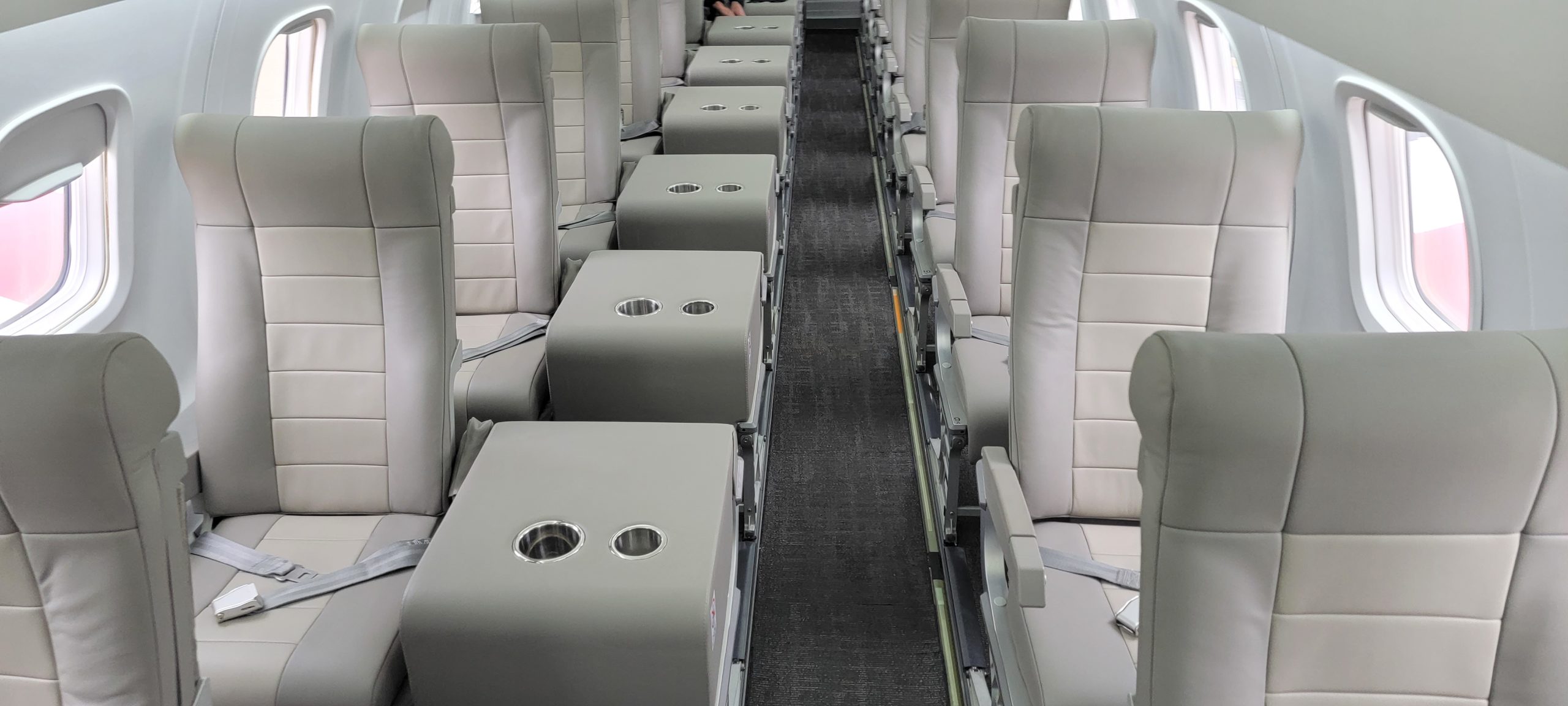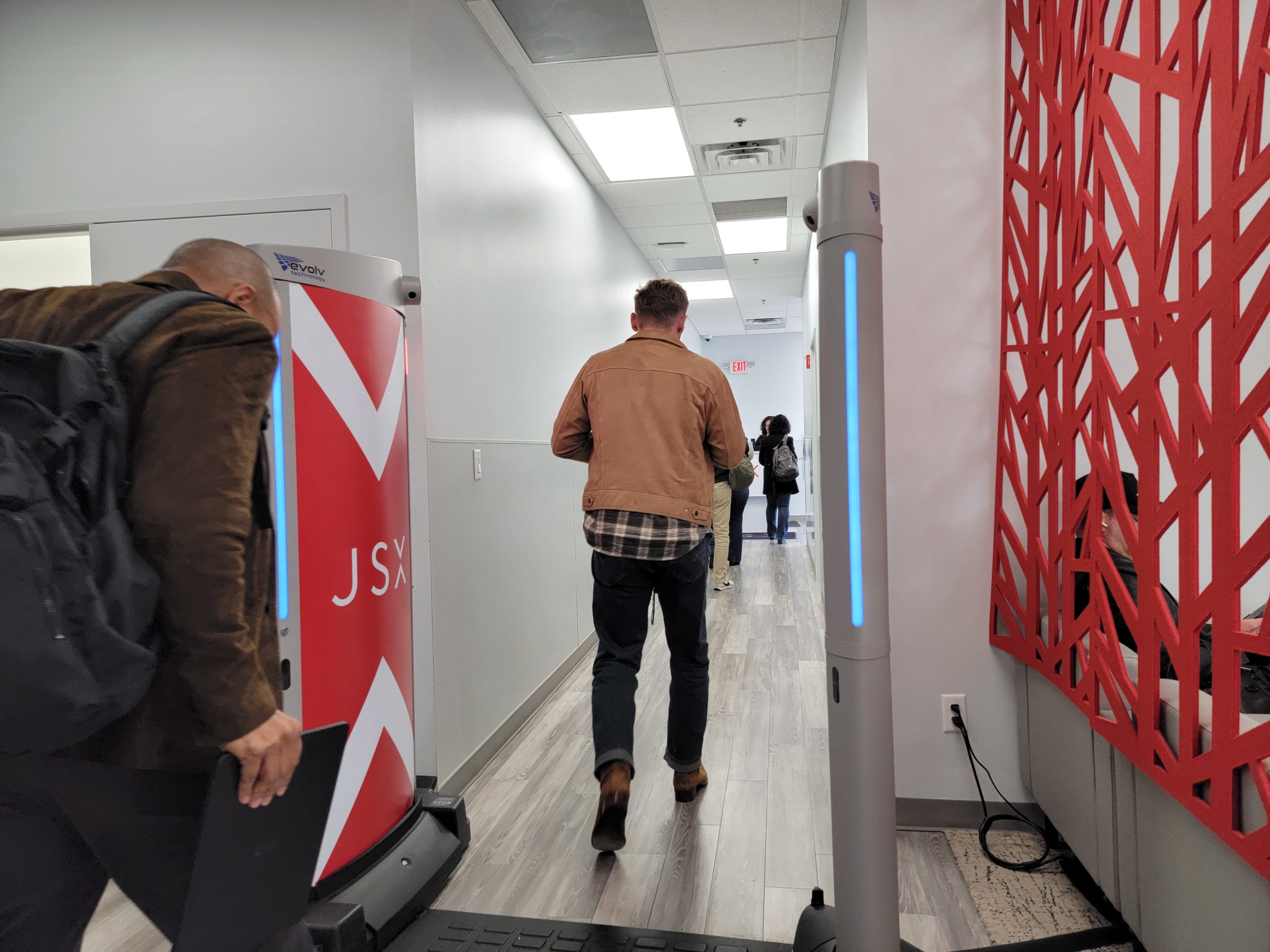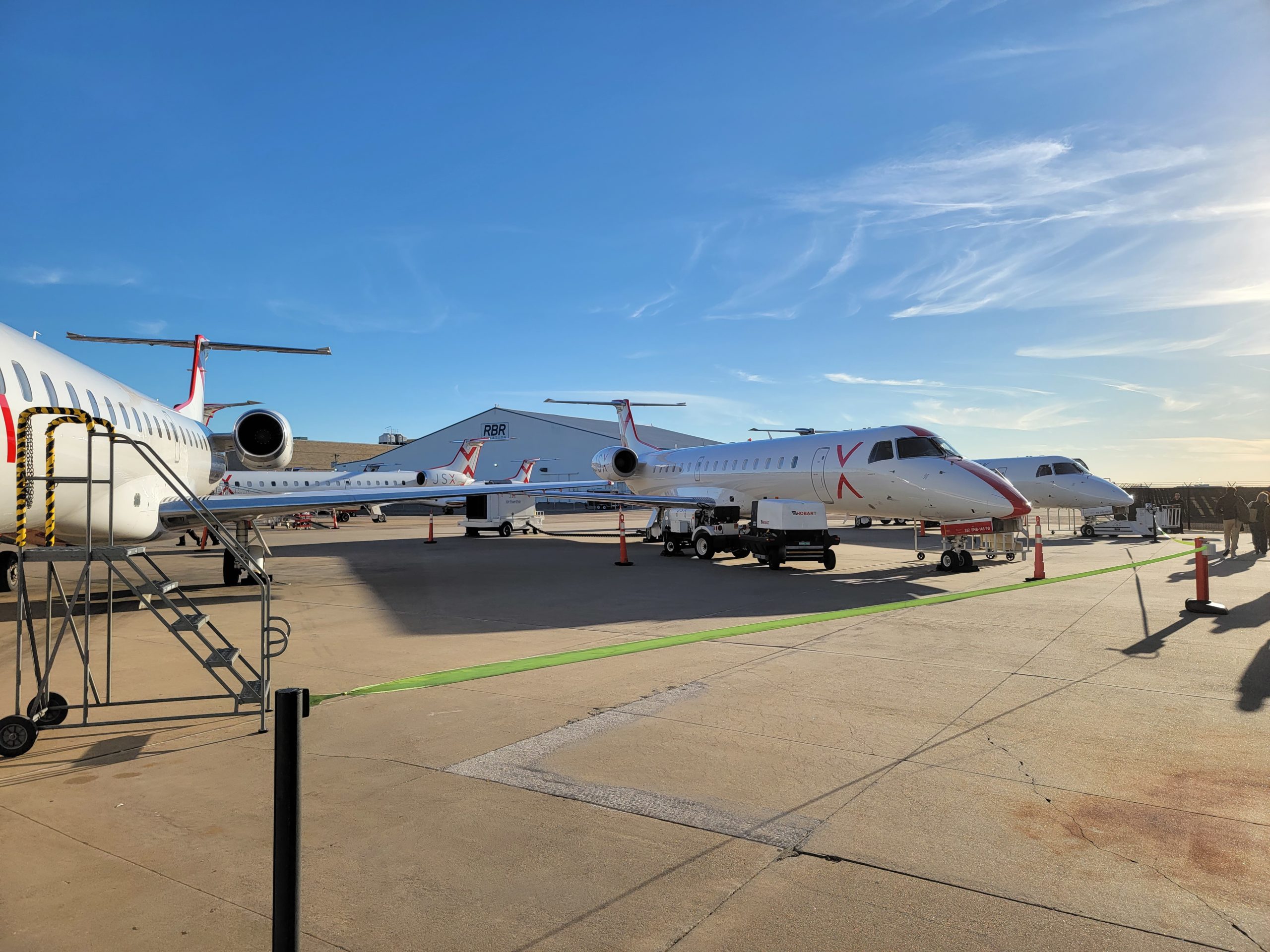With American Airlines and Southwest appearing to lose at the FAA and TSA in their efforts to shut down fellow Dallas-based competitor JSX, which offers a better passenger experience, they’ve turned to their friends in Congress to do the dirty.
Marc Veasey (D-TX), who represents Dallas in Congress, has co-authored a bill to require the same security rules for public charter flights selling seats to the public as for large commercial airlines. Rep. Jake Ellzey (R-TX) from the Dallas area has signed on a co-sponsor, and the major pilot union President and Sara Nelson have lent endorsements to the effort.
- The former CEO of American Airlines and Chief Operating Officer of Southwest personally lobbied the TSA Administrator to do this.
- TSA studied the issue and apparently concluded it wasn’t necessary.
- So they’ve lobbied Congress to impose it anyway.


JSX, with only 30 seats, is allowed to operate from private terminals. Every bag is screened, every passenger is scanned for weapons, and IDs are checked against government targeting databases. They’re less of a target than the large commercial carriers, and they represent a very small number of takeoffs and landings compared to the 4.5 million private flights departing without any such screening every year in the United States. They exceed all federal screening requirements. And they allow a much better passenger experience.

Meanwhile both American and Southwest offer travel from private terminals with an option to circumvent the standards that JSX adheres to.
As American Airlines CEO Robert Isom put it in a closed meeting, though his comments leaked, this is entirely a commercial dispute for which they’re enlisting the government to block a competitor. (Emphasis mine.)
If you don’t have to deal with the same DOT provisions, the same FAA provisions, the same security TSA provisions that’s not fair…. I’m quite certain that the FAA, the DOT, and TSA will take a look at what’s going on and make sure that no one is advantaged..
According to the TSA Administrator, they are revising Twelve-Five Standard Security Program requirements for public charter flights as American and Southwest lobbied for – but it sounds like they’re going to insist that public charters follow procedures similar to what JSX already does, rather than kicking them out of private terminals and forcing their passengers to go through TSA checkpoints.

The FAA still plans a rulemaking in response to pilot union and American/Southwest lobbying. FAA Administrator comments suggest that new rules will be years-off, and while likely to give the big airlines some of what they’re looking for they’ll actually study the issue and may create pathways for JSX to continue to operate.
If their lobbying of federal agencies won’t kill JSX, they’re just going to try to make the JSX business model that allows passengers to show up at the airport 20 minutes prior to departure illegal.


Ultimately, none of this is unusual. Companies have done this ever since the country was founded. The only difference is that it leaked to the press.
The legacy carriers understand simply it’s a better experience something they don’t wish to offer as they pack cattle into their 3 inch wide seats
Why would they want competition?
Everyone has the same rules or shut them down
Everyone has the same rules or shut them down. Why are 35 passengers safer for security than 50?
Gary the way to fight this is to enlist pet owners. JSX is extremely popular with dog owners as they are the only airline that permits large dogs in the cabin (that are not service animals). These owners will be outraged if JSX is shut down.
@Trkq
Why doesn’t apply to one person flying a personal Cessna?
Of course. Best passengers would have been siphoned off.
@Trkq –
“Everyone has the same rules or shut them down”
The proposal exempts 9 seaters, it doesn’t give ‘everyone the same rules’
“Why are 35 passengers safer for security than 50?”
The long-standing rule is that 30 seat aircraft used in scheduled charter service can depart from an FBO under rules set by the TSA twelve-five standard security program.
Now, JSX exceeds those standards by quite a lot. But when you have a 172 passenger plane (eg an American Airlines 737) that’s a more attractive target than a 30 seat plane. It’s also nearly six times the risk, because it’s almost six times the people.
However you don’t have TSA screening passengers for hundreds of those 172 passenger planes, either. With JSX volume of 30 seat planes often half full, you get a lot more focused security than at a commercial airport checkpoint. Their weapons detectors, swabbed bags, and passengers vetted against targeting lists – combined with less attractive target – are probably better hardened against bad actors.
The other issue deployed against JSX is that ‘the same’ rules for pilots ought to apply to scheduled charters as for mainline carriers, but that’s silly. The best safety rules are mission-specific. Since the biggest threat to pilots operating safely is fatigue, JSX – which operates 1-2 hour short hops and has 90% of flights return to base each night – has rested pilots sleeping in their own beds. A widebody captain flying to Europe or Asia, across numerous time zones and flying jet lagged, is dealing with a completely different beast.
It doesn’t make sense for the rules to stay the same for very different kinds of operations. The best approach for safety is tailored to the specific mission.
This is forum-shopping, plain and simple.
Politicians should start wearing racing suits so we know who’s buying them.
In Australia and New Zealand, there are (or at least were) airports where you don’t go through screening to board a turboprop. WLG is the weirdest. You board a turboprop like one did in the 60s. Jet flights have security to get into the lounge to board. There’s an xray machine and metal detector for each gate that might fly jets. Note, I haven’t been to these airports in a least a dozen years
Surprise, business flyers willing to pay $500 and up for a flight don’t want to deal with 200 other passengers at cattle call or the maze Called DFW. All of a sudden the free market proponents don’t like the free market when someone else has a better idea. American kept preventing Southwest from flying from Love Field to most of the country for decades. Southwest still can’t fly to Mexico without a connection at Hobby.
Yeah, “a plot to destroy”….that’s what it is. That JSX and Contour fly the exact same planes as Commuteair and Piedmont, but with lesser security than JSX and Contour have nothing to do with it.
@TRKQ… Just curious what airline do you work for?
So neither AA, WN, nor the congressmen have enough sense to cry foul about Blade as well so it at least appears to be in the name of safety?!? That says it all right there!
“scheduled charter service”
That statement is internally inconsistent. If it is operated as a scheduled airline, and JSX is, it is not a charter.
If the JSX security is good enough for its scheduled commercial services, it should be good enough for all scheduled commercial airlines.
Or is it, “The rules for thee, not for me”?
@1KBrad –
“If the JSX security is good enough for its scheduled commercial services, it should be good enough for all scheduled commercial airlines.” Airlines should lobby for this. We got the TSA we have now because the major commercial airlines thought after 9/11 that it would come with major subsidies for them. They pushed the system they live under, it doesn’t make sense for new entrants to the market to have it foisted upon them, too.
In any case this is wrong-headed anyway. Security should be situation-specific not the same everywhere. Same with pilot rules. 30 seat one and two hour hops are fundamentally different than global brand 172 or 250 seat cross country and intercontinental flights in terms of risk profile.
“Or is it, “The rules for thee, not for me”?”
It’s ‘Consistency is the hobgoblin of little minds’
@1KBrad –
Actually it isn’t. The FAA defines public charters (what JSX does) as categorically unscheduled. They clarified in 1997 and again in 2007 that these flights can appear scheduled because they have a set time and stuff, but that they are categorically unscheduled and instead require a flight prospectus.
If you say JSX has to fly from terminals because they have a different set of rules they shouldnt be allowed to have, then what youre actually saying is that every plane in the country that isnt flown by a part 121 airline or part 121 pilot isnt safe.